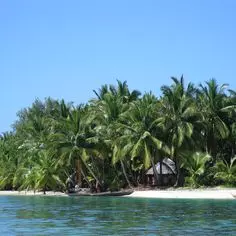
Social and Employment
Project leader
Aux couleurs de la terre
Place
Sainte-Marie, Madagascar
Sponsor
Marie-Pierre Buffard
Grant(s)
20,000 € to the Selection Committee at 2006/07/04
“As the person in charge of training, I feel very motivated by the setting of training programs that favor self-sufficiency and personal and collective development of the men, while ensuring the economic development of the country.”
Marie-Pierre Buffard
On the east coast of Madagascar, the small island of Sainte-Marie has been thriving economically for the last four years largely due to the development of ecotourism. In addition to the highly interesting terrestrial fauna and flora, as on Grande Ile, vacationers come to observe the migration of the whales off the coasts. However, for most of the 14 000 inhabitants, this recent development does not yet mean a significant improvement in the quality of life. Fishermen in the morning and farmers in the afternoon, they have not yet succeeded in establishing regular commercial relations with the restaurant and hotel owners settling along the coast. Their production (fruits and vegetables) and their fishing are still considered too artisanal for them. In other words: too haphazard and irregular. At Sainte-Marie, products of the land and sea still mainly come from Grande Ile.
Improving storage techniques
To rectify this situation, and also to encourage the “oldies” to transmit their knowhow to the young, the Madagascan association Crac (Group for Christian Reflection and Action) Hasina, which has been busy in recent years for the economic and social development of the island, has developed a project to back the fishermen, alongside its French partner Aux couleurs de la Terre, created in 2004 in the Saint-Étienne region. Enabling them to follow advanced training and to improve their skills, fishing techniques and farming practices, the idea is to give them all the means so that, in their turn, they can work with the restaurant owners and benefit from the economic prosperity of the island. The future trainees will, for example, learn all about issues related to the management and storage of their produce. Besides, in addition to setting up a training center, the project calls for the acquisition of new equipment for fishing (canoes and nets) and for agriculture (tools, seeds).
Alongside the Rhône-Alpes region and the town hall of Saint-Étienne, fondation Veolia has decided to pay 20 000 euros for this project, to finance all the necessary tools.

